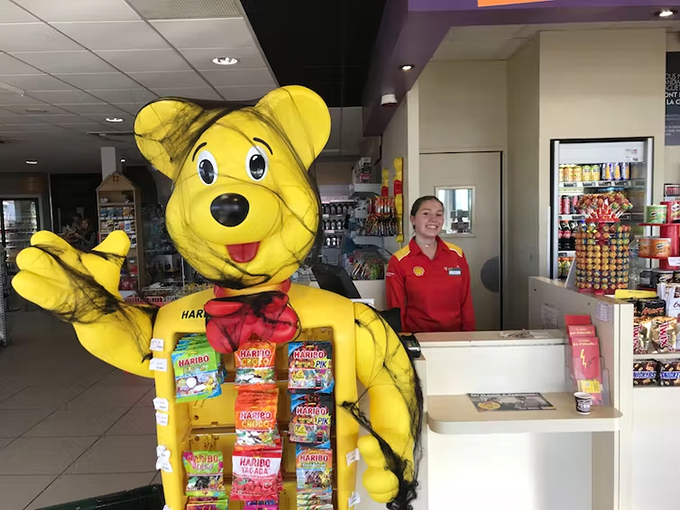
Her name is Laura and she dismantles refrigerated truck tires at Petit Forestier in Rungis. His name is Louis and he is a garbage collector at SEPUR. He has an appointment at his warehouse in Bondy at 4:45 a.m. every morning, because the garbage truck that sets off at 5 a.m. won’t wait for him. Their names are Lou and Justine. They make fries, checkout, cleaning at Burger King, one in Marseille, the other in Nantes Saint-Herblain. Their names are Laura, Gabin, Arnaud and Paul and, at the Auberge des Migrants, they chop wood and distribute meals in the miserable ruins of the Jungle of Calais, between the mafia of smugglers and police operations .
Barely out of preparatory class and after only a month on campus, there are 430 students from ESSEC’s Grande Ecole program to be in action throughout France, in associations , workshops, reception or integration structures. Their participation in this “Field Experience” is compulsory and constitutes a condition for the validation of their diploma.
Confront your certainties with reality
Thus, at the time of reactivating the spirit of the worker internship, two major decisions were taken. Firstly, ESSEC would find 100% of the internships in order to guarantee the quality of the assignments. Secondly, in addition to the world of industrial, logistical and commercial work, the Field Experience would also concern priority education, social and food assistance, actions towards disabled people, refugees and migrants, the care of drug addiction, old age, health, that is to say all the registers of precariousness and vulnerability.
The program’s network of partners therefore ranges from the largest international group to the smallest neighborhood association, including public actors. However, all Field Experiences have a few essential criteria in common: the internship lasts four full-time weeks, it consists of exclusively field work, in an executive position, within a structured organization and usually includes , a physical aspect.
From its creation, the educational aims of the Field Experience were clear. The training of a manager cannot be limited to a strong selection in the competition combined with a strictly academic and theoretical management education. To these two decisive aspects of the training course at ESSEC should be added a third, more operational dimension. Thus the challenge of the Field Experience is twofold. It is first of all about confronting the students with an organization, whether it is a company or an association, and this from the inside, on the ground and not from a point of view theoretical and overlooking or directly to a management position.
Then, it is a strong confrontation with reality and, in particular, with an encounter with the other in all its cultural, social, economic, geographical, health, educational diversity… It is also a question of daring to trust to our students by pushing them towards an experience that can be difficult and disconcerting. Inevitably, Field Experience dislodges students from certain certainties. After a generally brilliant course, but essentially based on theoretical lessons in a classroom, the confrontation with reality, with the other and with the difficulty of action reopens in a stimulating way the whole field of doubt and questioning. However, this requires, in return, attentive and vigilant support.
The experience of otherness
It is impossible to know, and even less to predict, what each ESSEC student learns from his Field Experience. Still, 88% of them claim to have learned and progressed and that 95% are satisfied with the program. However, we are not talking here about academic knowledge or techniques. We are talking about a more intimate knowledge that often belongs only to the person who experiences it. “To experiment with anything […] means to let it come upon us, to reach us, knock us down and metamorphose us”, wrote Heidegger in Acheminement vers la parole . And therein lies the full power of what is called “pedagogy by experience”. : it makes us learn through the body, the heart, the emotions what no purely intellectual statement can make perceptible.
This is why a pedagogical work of reflection on facts and feelings accompanies the Field Experience under the direction of Pr. Junko Takagi and about twenty facilitators. This is also why a service dedicated to experiential learning now exists at ESSEC. Coordinated by Agnès Zancan, it organizes several stages of ESSEC’s educational path which articulates theoretical learning and practical experience, in the classroom and in the field.

ESSEC student at her internship site, at AREAS (sales and catering), in Burgundy, during the Field Experience. Yann Kerninon , Provided by the author
In 2012, building on its success, the Field Experience was extended to 600 students in the ESSEC BBA program. There are therefore now more than a thousand students who set off on this adventure each year. Beyond its pedagogical dimension, such an approach obviously has a social and political impact. At each edition, a Field Experience forum takes place. It brings together on the ESSEC campus the fifty partners of the program and the hundreds of students who are preparing to participate. For several hours, on the campus of a large school, Saint-Gobain industrialists and mentally handicapped people welcomed at L’Arche , Ikea managers and drug addicts’ aid workers, EPIDE volunteers, National Education and small local associations or businesses.
The task of an educational establishment cannot be limited to the simple dissemination of knowledge, nor even to simple technical and operational training. In particular, the training of executives, creators and business leaders of tomorrow, economic and political leaders, supposes an intellectual, human, even spiritual elevation, which passes through an encounter with the other and with oneself, a questioning of his relationship to the world and his place in it.
More than 70 years ago, René Char wrote:
“The contemporary world has already taken dialogue, games and happiness away from us, it is about to descend to the very center of our life to reach the last home, that of Encounter. Here it will be necessary to oppose or die, to be broken the head or to keep its pride. »
In a time of “distancial” isolation, of generalization of simplistic words and binary, even violent oppositions, the Field Experience constitutes a resistance to this dislocation of the human link and thought, a praise in action of the complexity of the world and meeting the other. For fifteen years, this program has touched more than 10,000 students who bear the memory and traces of it.
Author Bio: Yann Kerninon is a Field Experience Coordinator at ESSEC
